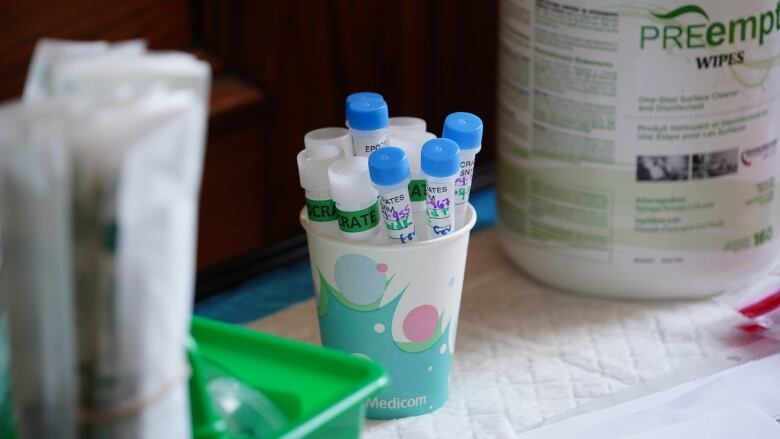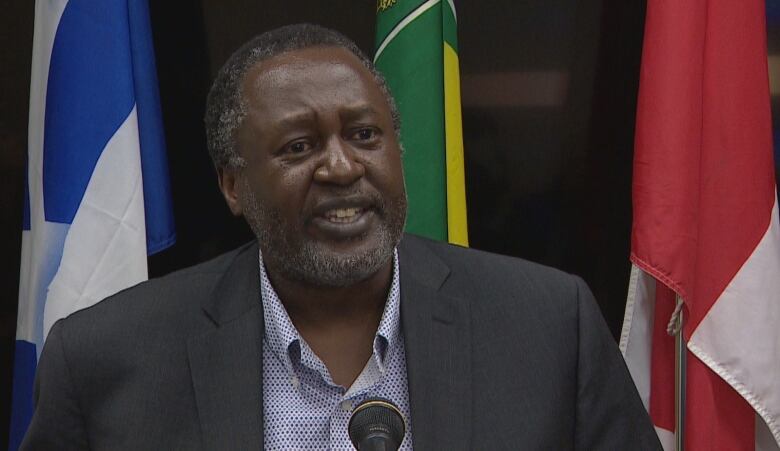Sask. Health Authority says rapid COVID-19 tests for elementary schools don't replace PCR tests
Thousands of rapid tests are being shipped to schools this week

The Saskatchewan Health Authority (SHA) says rapid COVID-19 tests being sent to elementary schools this week are a screening tool for asymptomatic people not a replacement for PCR tests.
The Saskatchewan government has shipped 475,000 rapid antigen tests to all elementary schools in the province to distribute to students and their families.
The SHA recommends each household member take a test weekly when they're asymptomaticas a way to screen people who may have COVID-19 but not be showing any symptoms.
Dr. Johnmark Opondo, a Saskatchewan Health Authority medical health officer in Saskatoon, says the tests are an "additional layer of protection."
"Just being able to screen your child once a week without any symptoms is a good way of being able to remain assured that they haven't been infected with COVID," Opondo said.
Opondo says the rapid tests should not be used by people experiencing COVID-19 symptoms, or as a final tool to determine whether you have the disease.
"This is not the ideal or the recommended use for the antigen test," he said.

Opondo says if a child has COVID symptoms but tests negative with the antigen test, it's not a good idea to send them to school that day and that a PCR test is needed to confirm.
He says anyone with symptoms should go to a testing centre or drive-thru clinic for a PCR test. You can also call 811 to book a test.
If you're asymptomatic and get a positive test result with the rapid test, you should also go to a testing centre to confirm the result, as well as call 811 to get directions on masking and isolation.
Rapid tests less accurate than PCR: epidemiologist
Nazeem Muhajarine, a professor of epidemiology at the University of Saskatchewan, says rapid tests are less accurate than PCR tests.
Both the rapid and PCR tests involve a nasal swab but the former doesn't need to go as deep.
"If you test negative, it's not 100 per cent certain that you don't actually have the virus, you are not carrying the virus, and you are not potentially infected and potentially could transmit to others," Muhajarine said.
However, he says they're a good precursor to deciding whether you should go to a testing site or keep your child home from school.
"It's a tool that can be used quite well, quite efficiently, prior to making decisions to put your child in a place where they might be exposed."
Limited number of tests for each school
Parents with children under 12 years old can request a testing kitcontaining 25 rapid testsfrom their school. Households can only get one kit at a time.
The kits are running out as soon as they arrive at some schools, which has frustrated several parents.
The health ministry told CBC News that schools are getting enough tests for15 per cent of students under 12.
The province is supposed to receive 2.6 million self-tests from the federal government by mid-October.
"Additional tests will be provided to schools to replenish stock, as the tests are received by the province. There is no fixed date for additional distribution to schools at this time," the ministry wrote in an email.












_(720p).jpg)


 OFFICIAL HD MUSIC VIDEO.jpg)
.jpg)



























































































